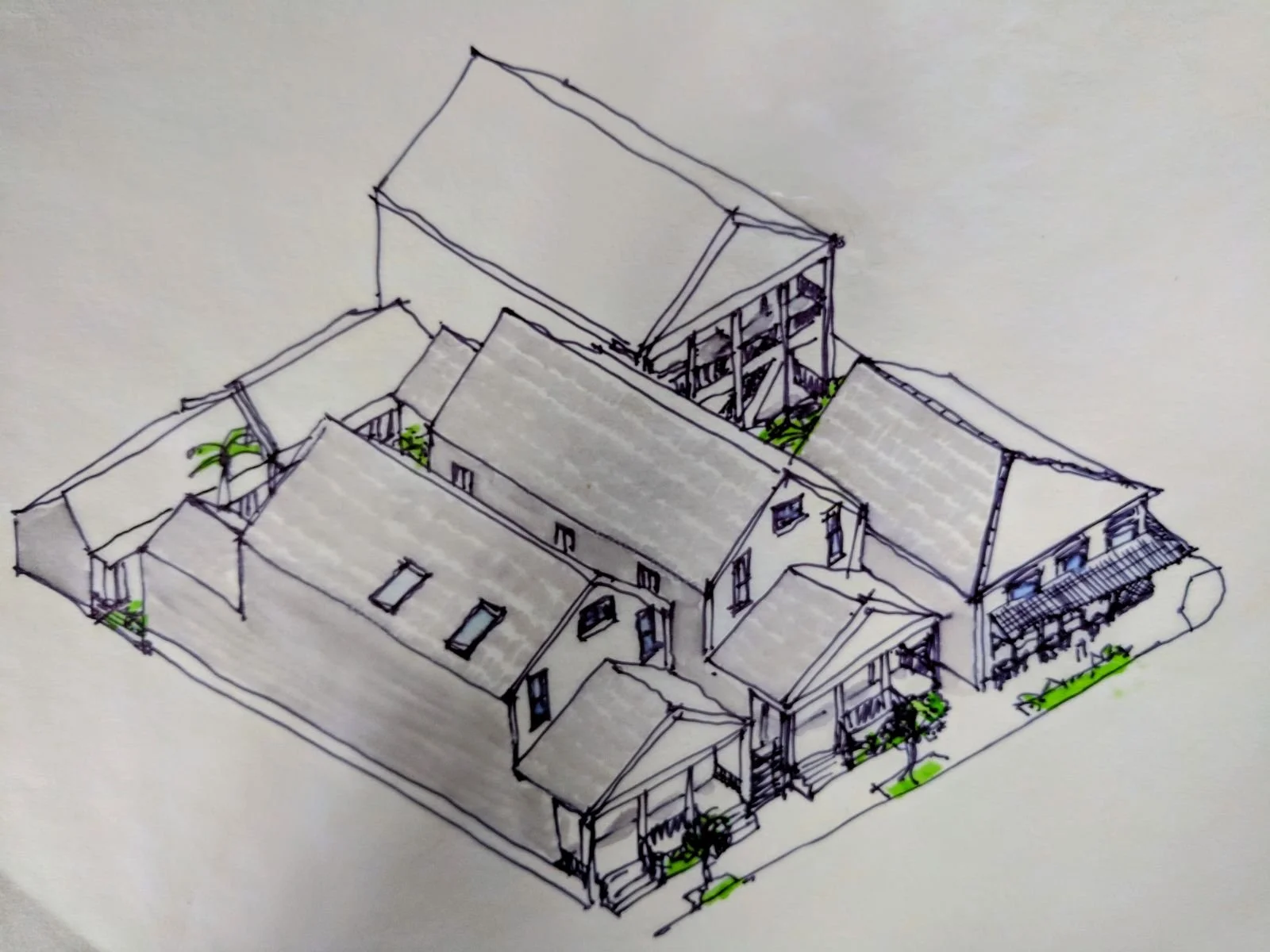What's Wrong With a Little Fast Easy Money?
“This is one of the problems with short-term rentals. People can make fast easy money rather than doing what the community actually needs.” - City of New Orleans official on the short-term rental issue.
This quote from a project we were involved in to create a new affordable housing neighborhood that ultimately did not move forward stuck with me. Preface: We thank our public servants, and acknowledge pull quotes without context do not fully depict anyone's full understanding of a topic.
Let's examine this quote, however, because it reveals a fundamental shortcoming in our current approach to cities and planning. It posits that "fast easy money" is a bad thing, and that people should care more about "doing what the community actually needs” than “fast easy money.” Yes, people should.
"Fast easy money" can certainly be a bad thing, particularly when it quickly leaves the city and lines the pockets of out-of-town developers uninterested in the problems of us full-timers. However, those out-of-towners do not think it is bad, and as a city, you have to realize your position of leverage here as the gatekeeper to fast, easy money. Use that to your advantage, instead of just taking your ball and going home - essentially what has been done with blanket prohibitions with vague end dates to follow endless reports and studies.
Regulations and moratoriums seem to fight this, but ultimately, those they seek to stop can afford to delay, out-maneuver, or ultimately, just take THEIR ball and go home - leaving the "fast easy money" spigot turned off for everyone, which is an equally bad, possibly worse outcome for the city as a whole than doing nothing.
Blanket prohibitions are VERY EXPENSIVE proposition when you consider that it is a floodgate that is holding back a lot of money from potentially entering our urban system, which desparately needs it.
Quick working sketch we did imagining a mixed-use corner in the Seventh Ward.
You know who could use "fast easy money"? Our current crop of homeowners or potential homeowners, reeling from the quadruple whammy of rising insurance rates, real estate taxes, financing costs and construction costs. An "easy" setting for the game of development had previously been enticing many local people to dip their toe into developing properties in their own neighborhoods, and learning the game, giving them the ability to shape their own city and build value for themselves and their neighborhoods.
This mode of incremental development was much more the status quo in the days that saw the construction of swathes of our historic human-scaled city that we seek so strongly to preserve. Our most valuable neighborhoods today were not created by large investment groups swooping in to knock out entire city blocks with stacks of capital and a master-planned community designs.
The planning department, and our own citizens, need to do more to encourage OUR locals to begin to feel empowered to shape their own city because they are closer to, and benefit directly from, “what the community actually needs.”
That is how you link, rather than separate, the two halves of that quote: “fast, easy money" and “what the community actually needs.”
The city should empower our citizens by showing that they too can benefit directly from property ownership and investment right where they live. Neighborhood citizens should do their part by swallowing reactionary feelings regarding change and really listen to proposals for new endeavors, and see who is proposing them.
The new normal sees property as a passive, static asset to sit upon. It can be an even more valuable farm that can yield different products - rental income, personal office space, a storefront for a business endeavor, a hospitality product that offers a connection to a community rather than a box in high tower. And these benefits, when kept local, can irrigate and strengthen neighborhoods and create community.
If you have an idea, or need an idea, for how to make a piece of property work for you, we can help you navigate the often daunting, sometimes counterproductive barriers to making your community better.


